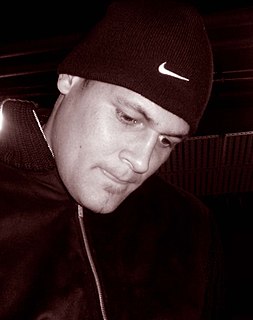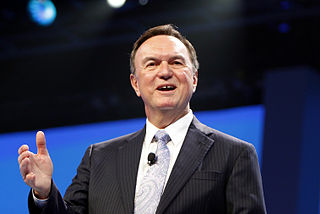A Quote by Richard Branson
I felt uneasy about making the rapid decisions I have always made, and wondered whether every decision should be formally ratified and minuted at a board meeting.
Related Quotes
It's a bit disappointing when board members who don't know a thing about football are making decisions on your career. When you look at it you've got coaches, senior players and CEO's who wanted me but then it gets to a board meeting and you've got fat businessmen who are making the decision on your career. It was frustrating and it made me a bit angry.
I think every responsible public board at every board meeting should be discussing succession. And, of course, Walmart has a very mature board: our chairman Rob Walton and other members. So succession is an ongoing. I think when I first joined the board of directors, it was discussed then. And it's discussed at every board meeting continually.
Actually, I can't take credit for any of my decisions. I noticed one day that all my decisions were making themselves, and always at the right time. I haven't had to make one decision since then. They are always made for me, and they come from the wisdom that is in us all. I trust that wisdom completely. That trust itself was a decision made for me as inquiry cleared my mind. No decision, no fear.
I've spent a lot of time in my political life talking about why it matters to have women in the decision making, whether it's at the family table, whether it's in a board room, whether it's in the halls of Congress, whether it's in your community meeting. And it has to do with the fact that women's lives are different. You know? They're not better or worse than men's, but they are different and we bring that different perspective to whatever we do. And it's important to have that perspective at the table.
I think, for the good of the country and the fact that you don't want a question coming up every time there's a decision made, [Donald Trump] should basically take himself out of it and just be a passive participant in the sense that he has no decision-making, no involvement and no decisions get made separate from him. Which is the way the way it's done for more Cabinet offices. Or I think all Cabinet offices.
If a woman makes a unilateral decision to bring pregnancy to term, and the biological father does not, and cannot, share in this decision, he should not be liable for 21 years of support... autonomous women making independent decisions about their lives should not expect men to finance their choice.
If a woman makes a unilateral decision to bring pregnancy to term, and the biological father does not, and cannot, share in this decision, he should not be liable for 21 years of support. Or, put another way, autonomous women making independent decisions about their lives should not expect men to finance their choice.
When making a decision of minor importance, I have always found it advantageous to consider all the pros and cons. In vital matters, however, such as the choice of a mate or a profession, the decision should come from the unconscious, from somewhere within ourselves. In the important decisions of personal life, we should be governed, I think, by the deep inner needs of our nature.
In their zeal for particular kinds of decisions to be made, those with the vision of the anointed seldom consider the nature of the: process: by which decisions are made. Often what they propose amounts to third-party decision making by people who pay no cost for being wrong-surely one of the least promising ways of reaching decisions satisfactory to those who must live with the consequences.
Any individual decisions can be badly thought through, and yet be successful, or exceedingly well thought through, but be unsuccessful, because the recognized possibility of failure in fact occurs. But over time, more thoughtful decision-making will lead to better overall results, and more thoughtful decision-making can be encouraged by evaluating decisions on how well they were made rather than on outcome.
Startups need to focus on building a foundation for their company culture early, and then they need to revisit it often. Every time a hire is made, a feature is launched, a Facebook status is updated, a press interview is given, a round of financing is raised, or a meeting is held, culture should be part of the decision-making process.

































